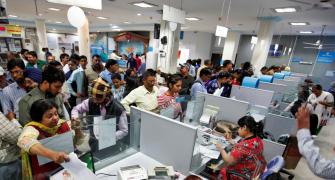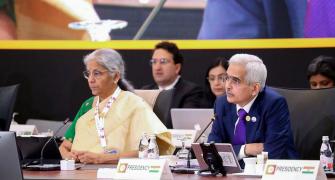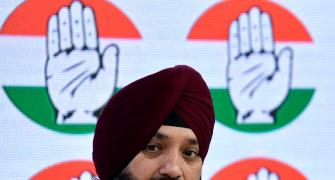'It is nice that the banking system is in good shape.'
'It is a little early to call it too good because I think it was too bad in the past.'

The Indian banking system has room to improve further and needs to sustain the healthy profile while ensuring that the current spell of optimism does not turn into irrational exuberance, says N S Vishwanathan, former deputy governor, Reserve Bank of India, and the chairperson of College of Supervisors.
Speaking at the SAS-Business Standard event 'Risk & Banking Resilience', Vishwanathan points out that the banking ecosystem in India had moved from "too bad to normal", supported by regulatory action.
"It is nice that the banking system is in good shape. It is a little early to call it too good because I think it was too bad in the past. What I see is that we are moving from too bad to normal. But this has not happened overnight," says Vishwanathan.
Steps like the Asset Quality Review (AQR), the Insolvency and Bankruptcy Code, and the provisioning for NPAs (non-performing assets) had made Indian banks more robust and resilient, he explains.
However, cautioning the banks from celebrating too early, the former central bank deputy governor points out the need of sustaining the current resilient structure.
Though a lot of things had been put in place internally and a lot had happened externally, he says sustaining this was important.
Over the years, the provisioning coverage ratio (PCR) of banks has risen to 70-80 per cent, he notes.
Vishwanathan says the RBI had been proactive in its response to any crisis.
RBI interventions, he says, were made at the time of the crisis and not after it, and added that these cases, like the trouble at YES Bank, were anticipated by the RBI and that the central bank was now better equipped in terms of technology and talent.
Laying emphasis on preparing the supervisors, he says: "It is important to keep in mind that sources of risks in the financial sector are changing. Their job is to unravel the unknown and understand the possible risks."
On the debate between a principle-based approach and a rule-based one, Vishwanathan highlights it was not "unfashionable to be rule-based".
The regulatory system could not be principle-based, he adds, when the interpretations were done by the letter of the law, while questioning the preparedness of the banking sector.
In a panel discussion 'Meltdown Sans Liquidity: The Lessons From The US Banking Crisis' following Vishwanathan's fireside chat, the bankers stated deposit liquidity in India now had gone back to pre-Covid levels.
The liquidity coverage norm is applicable to all scheduled commercial banks in India.
However, Silicon Valley Bank, despite being the 16th largest US bank, was considered a small entity and was exempt from liquidity coverage norms, leading to its collapse.
In India, even the smallest of banks have to continuously comply with norms and are under supervision.
In another panel discussion, 'IFRS9: Implications oFr Indian banks', the gathering of bankers and industry consultants also discussed the challenges in implementing the RBI's proposed framework for making provisions based on assessment of future defaults, popularly referred to as ECL, or expected credit loss.
At present, banks make provisions only after a loan account defaults.
On transitioning to the new framework for the provisioning for stressed assets, Deepak Kumar, chief risk officer, RBL Bank, saYS: "In the new system, I have to compute the expected credit loss based on the futuristic probability of default. If the provisions are increasing, ideally it should be covered through pricing of the banking products -- otherwise we will be eating into the capital."
The other challenge for the banks to transition to the new norms is the behaviour of borrowers, which varies across regions.
In the last of the panel discussions, 'Risk Decisioning At Indian Banks', the panellists spoke on the challenges emerging from cybersecurity and technological risks.
"The biggest regulatory challenge when it comes to AI models is how we ensure fairness of those models," says Shreya Paul, partner, EY India. "And ensuring fairness becomes important because of the inherent data which goes into these models from a lot of different biases."
Some experts also asserted the need for codified regulations on conduct.
"It is one risk no amount of capital can save you," says Ravi Duvurru, founder, Duvurru & Reddy LLP.
"We (India) do not have a codified regulation on conduct. But what we are increasingly seeing is supervisory intervention on conduct; there is a more emphasis on governance."










